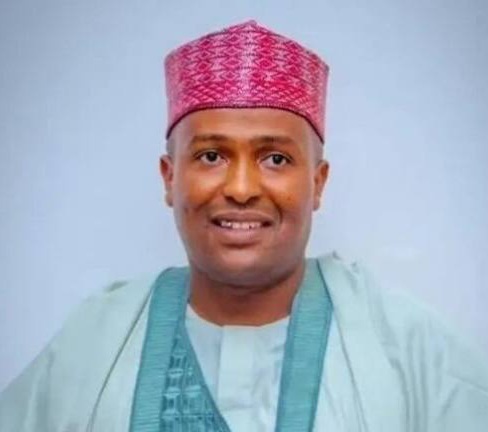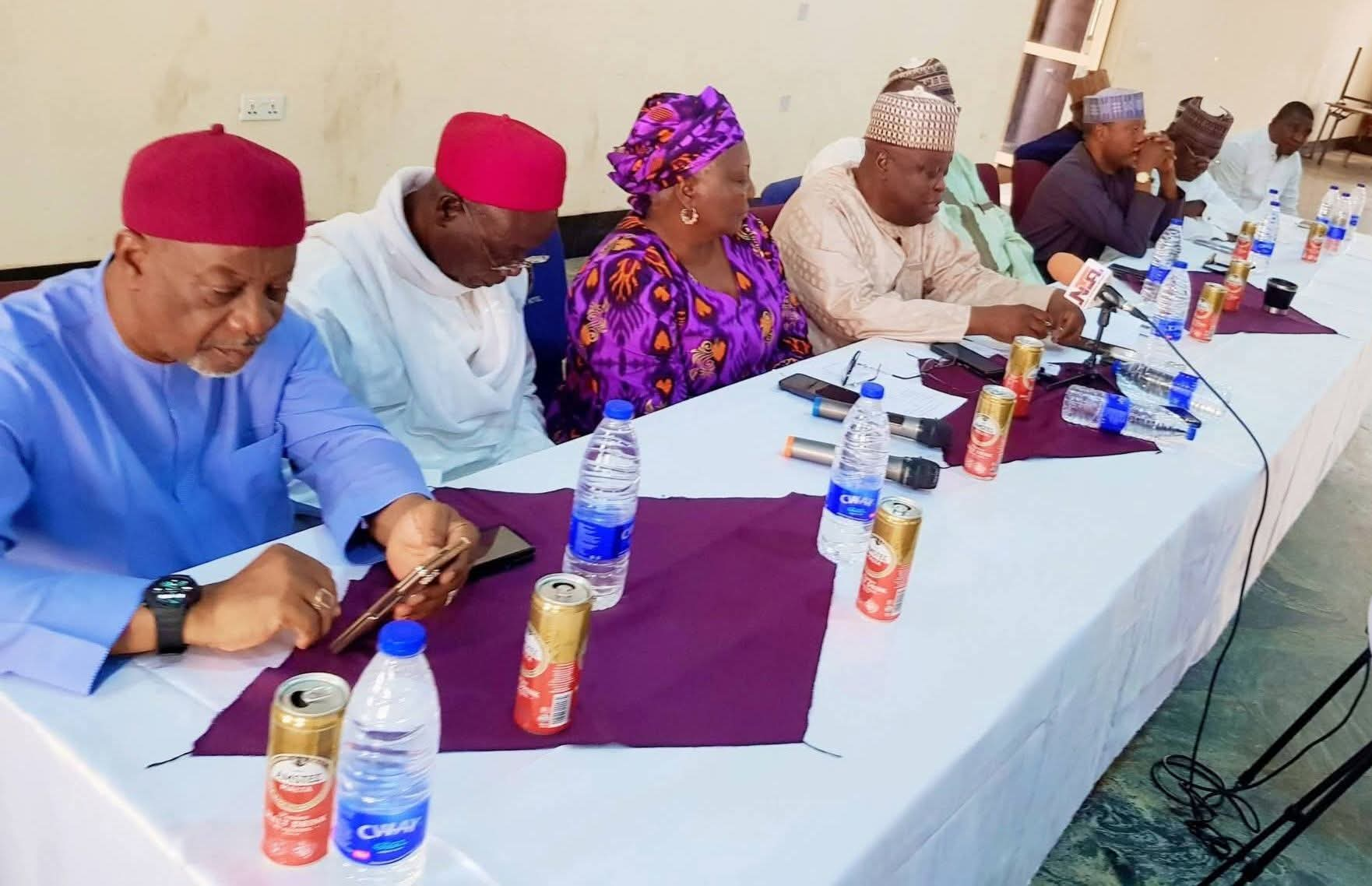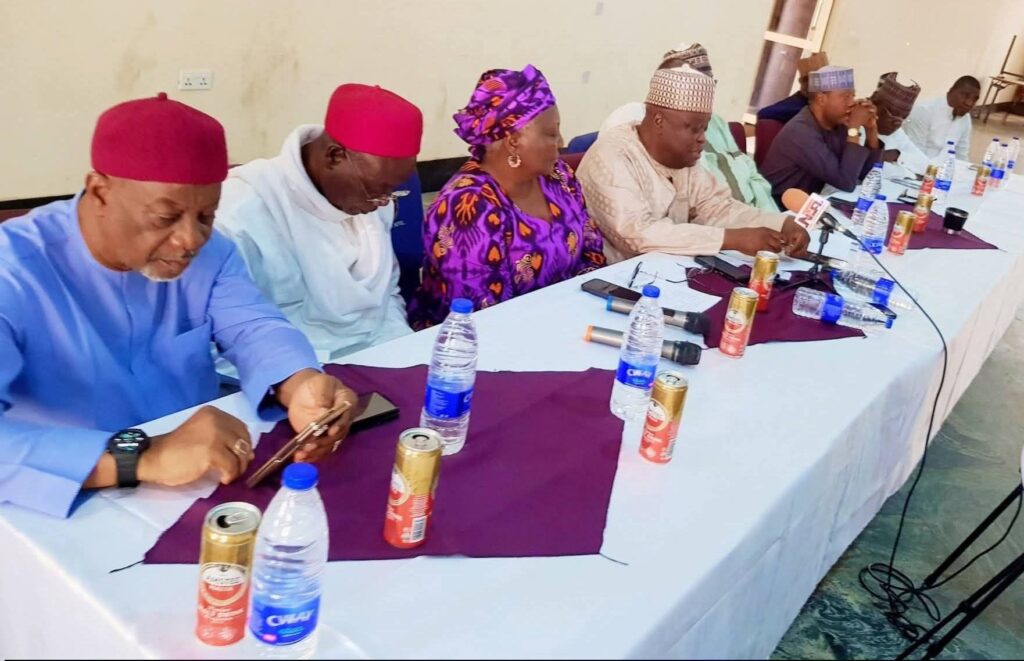News
Apapa Gridlock: Revive Ports In Other States – Ambode

The Lagos State Governor, Mr. Akinwunmi Ambode, has asked the Federal Government to do everything within its powers to revive existing Ports in other States of the federation.
He said that this will solve the existing traffic congestion at the Apapa axis of the State.
The governor stated this on Tuesday during a town hall meeting in Ibeju Lekki Local Government.
He said the recent chaos witnessed in the area was beyond traffic issues, saying that concerted efforts must be made to revamp moribund ports.
According to him, it is beyond getting other ports up and running, the issue of tankers queuing up to lift petroleum products from Tank Farms in Apapa was also a major issue causing gridlock and damaging road infrastructure in the area, which was affecting the economic growth of not just the State, but Nigeria in general.
“It would be very unfair to Lagosians if I don’t talk about issues relating to traffic management and integrated transport management most especially what we have witnessed in the last one week in Apapa, but again I would like to tell Lagosians that every stakeholder that is relevant to resolving the Apapa crisis, we have gone to work and you can see that there is a major improvement.
“But again, this issue has become perennial and in the last six years, it’s always been there, it comes and goes, but the challenge is to be able to find a permanent solution and in that reason Mr. President had directed the Vice President to come and see what the situation is and to actually give us a permanent solution.
“We are grateful Mr. President, we believe strongly that every layer of government should collaborate to be able to resolve this Apapa crisis.
“But we all must know that Apapa crisis is more than traffic issues. That is where all States depend on for revenue through Customs because the revenue is shared at FAAC.
“If anything goes wrong in the Port, whatever they get from Federal Allocation Account Committee (FAAC) could reduce,” Governor Ambode said.
He said the Apapa congestion was a national issue that required urgent attention, the Governor also noted that oil pipelines should be revived to discourage the trend of thousands of trucks coming from other parts of the country to lift petroleum products from Apapa.
“It is bad that we still use trucks to lift petroleum products from Apapa to other parts of the country.
“As it is now, other ports in Nigeria must begin to work immediately to decongest gridlock in Lagos. Whatever has led to the continual use of trucks to lift fuel, which is, vandalism of pipeline should be addressed immediately.
“We believe that this will allow the roads to become free. We don’t need to continuously use taxpayers’ money to build the road that was destroyed by tankers. We call on the Minister of Petroleum and Department of Petroleum Resources (DPR) to work towards reviving the pipelines,” he said.
The Governor also expressed concern about the approval for the development of tank farms in Ijegun area of Lagos, saying that as much as the State supports redistribution of tank farms, such should be located in areas that are not populated.
“We don’t need tank farms within Lagos metropolis anymore. There are 68 tank farms in Apapa alone. That is a serious danger waiting to happen. Beyond Apapa, they have approved tank farms in Ijegun axis and that is where we have a huge population.
“We need to redistribute tank farm establishment to outer borders and other parts. This is what we believe should be done at this moment to free Lagos roads,” he said.
Speaking on the efforts of his administration to develop the economy of the State, Governor Ambode said his administration has continued to keep faith with its mandate to ensure that the future of Lagos remains on a sound pedestal.
He said the Town Hall meeting, which had moved round the three senatorial districts in the State from its first edition held on October 6, 2015, has continued to provide the Government with first-hand

News
Kano Assembly Speaker Jibril Falgore Leads 21 Lawmakers Out of NNPP After Governor’s Exit

The Speaker of Kano State House of Assembly, Jibril Ismail Falgore, alongside 21 other legislators, has formally resigned from the New Nigeria People’s Party following Governor Abba Kabir Yusuf’s departure from the political platform.
The mass resignation, announced on Saturday, includes the Deputy Speaker, Muhammad Bello Butu-Butu, Majority Leader Lawan Hussain, and other principal officers of the state legislature, signaling near-total collapse of NNPP structures in the assembly.
According to a statement released by the Chief Press Secretary to the Assembly, Kamaluddeen Sani Shawai, the lawmakers declared total support for Governor Yusuf, who had exited the party just 24 hours earlier alongside eight federal lawmakers and all 44 local government chairmen in the state.
The defecting legislators include Deputy Majority Leader Garba Shehu Fammar, Chief Whip Muddasir Ibrahim Zawachiki, Majority Whip Zakariyya Abdullahi Nuhu, and lawmakers from constituencies across Kano including Ajingi, Albasu, Bagwai/Shanono, Bebeji, Bunkure, Dawakin Kudu, Fagge, Gabasawa, Garko, Gwale and Karaye.
The statement emphasized that the Kano State House of Assembly had verified and authenticated the complete list of defecting lawmakers to properly inform the public and clarify their political position following the governor’s resignation from NNPP.
The legislators reaffirmed their unwavering commitment and loyalty to Governor Yusuf’s administration despite the political realignment, pledging to continue supporting the policies and programmes being implemented across the state.
Governor Yusuf had communicated his decision to leave NNPP in a letter addressed to the party chairman of Diso-Chiranchi Ward in Gwale Local Government Area, effective January 23, 2026, citing persistent internal disputes and legal challenges that have undermined party stability.
In the resignation letter, the governor expressed appreciation to NNPP for the platform and support extended to him since joining in 2022, while acknowledging that deepening internal divisions had created an untenable situation requiring decisive action.
The NNPP Secretary of Diso-Chiranchi Ward, Kabiru Zubairu, acknowledged receipt of the governor’s resignation while commending his achievements in infrastructure development, urban renewal, healthcare delivery, education and economic empowerment during his time in office.
Zubairu admitted the existence of lingering internal challenges within the party and stated that NNPP had no option but to accept the resignation, describing Governor Yusuf as one of the most outstanding governors produced by the political platform.
The wave of defections marks a dramatic political shift in Kano State, where NNPP had dominated since the 2023 elections under the influence of Senator Rabiu Musa Kwankwaso and the Kwankwasiyya movement.
NNPP national officials have condemned the development, labeling it a betrayal of the sacred trust given by Kano voters. National Publicity Secretary Ladipo Johnson dismissed claims of irredeemable party crisis as baseless, while Kwankwaso declared he is not for sale and would not compromise his principles.
News
Singer TIME Drags Georgina Onuoha Over Comment on Davido’s Father’s Reaction to Paternity Saga

Nigerian singer, TIME has publicly called out Nollywood actress Georgina Onuoha following her criticism of Davido’s father, Dr. Adedeji Adeleke, over his reaction to the ongoing paternity controversy involving the Afrobeats superstar.
The drama began after Georgina Onuoha questioned why Davido’s father appeared to defend his son amid allegations that he welcomed a child with a woman identified as Anu Adeleye. In a post shared online, the actress described Davido as “irresponsible,” sparking mixed reactions across social media.
Reacting to her comment, TIME took to X (formerly Twitter) to drag the actress, accusing her of ignoring key details surrounding the case. He referenced statements made by Davido, noting that he had never met the said lady before the first DNA test, and questioned why people were not discussing other individuals mentioned in the saga.
“Madam Georgina, did you hear the part Davina said she’d never met her prior to the first DNA test? Why are y’all not talking about the bank official the girl mentioned to Dr. Sikiru Adeleke?” TIME wrote.
According to reports, Aanu’s mother has been identified as Grace Ayotomide Labinjoh, who has consistently maintained that Davido is her daughter’s biological father despite the singer and his family denying the claim.
TIME’s remarks triggered a fresh wave of debate online, with some social media users backing him for defending Davido’s family, while others accused him of unnecessarily attacking Georgina Onuoha.
As the paternity saga continues to trend, the clash between TIME and Georgina Onuoha has added another layer of controversy, keeping Davido and his family at the center of public discourse.





News
Nasarawa ADC Suspends State Chairman Over Alleged Anti-Party Activities, Sets Up Disciplinary Committee

The African Democratic Congress (ADC) in Nasarawa State has suspended its State Chairman, Godwin Alaku Williams, over alleged involvement in anti-party activities.
The suspension was approved by the party’s Transitional Leadership Team (TLT) following a petition accusing Williams of actions deemed harmful to the unity and progress of the party in the state.
The decision was taken at a TLT meeting held on Wednesday at Otunsha Hotel, Keffi, and presided over by the party leader, Chief John Michael Abdul.
In a statement issued by the party’s spokesperson, Comrade Idris Ojoko, the suspension will last for 14 days, pending investigation and the outcome of proceedings by a disciplinary committee constituted by the TLT.
Ojoko also announced the appointment of Barrister Paul Magaji Ajeh, formerly the State Secretary, as Acting State Chairman, while Umar A. Babayaro has been named Acting Secretary.
According to the statement, the allegations against Williams include his alleged refusal to recognise the party’s National Working Committee (NWC) led by Senator David Mark, and his failure to integrate coalition members into the ADC party structure in Nasarawa State.
Other accusations include allegedly reporting some party leaders to the Independent National Electoral Commission (INEC), the Department of State Services (DSS), and the Nigeria Police, describing them as impostors.
Williams is also accused of constituting parallel party organs at various levels within the state, interfering with the establishment of party offices at the state, local government, and ward levels contrary to NWC directives, and disrupting the ongoing membership registration and revalidation exercise.
Meanwhile, Ojoko announced the formation of a disciplinary committee chaired by Barrister Hassan Yakubu. Other members include Amina Zanwa, Mamman Sunday, and Yunus Abdullahi Sidi, with Gaza Mark Auta serving as Secretary.

-

 News2 years ago
News2 years agoHardship: We Plan To Establish A National Commodity Board To Crash Food Prices – VP Shettima
-
News8 years ago
Blog Reader; Samson Osagiede Celebrates Fiancè Benedicta Daniels’s Birthday With Sweet Words
-
Home9 years ago
News Channel claims Donald Trump is an orphan from Pakistan,share alleged childhood photo
-
Home9 years ago
Another $175m Found in Patience Jonathan’s wife’s firm’s Bank Account
-
Home9 years ago
Oil Spillage: House of Reps Member Shares Photos of the Water her Constituents Drink .
-
Home9 years ago
Zara Buhari & Ahmed Indimi’s Wedding Access Card
-

 Sport7 years ago
Sport7 years agoModric, Marta Wins 2018 FIFA Best Player Of The Year Awards ⚽️
-
News8 years ago
The Best Video You’ve Seen Today?
